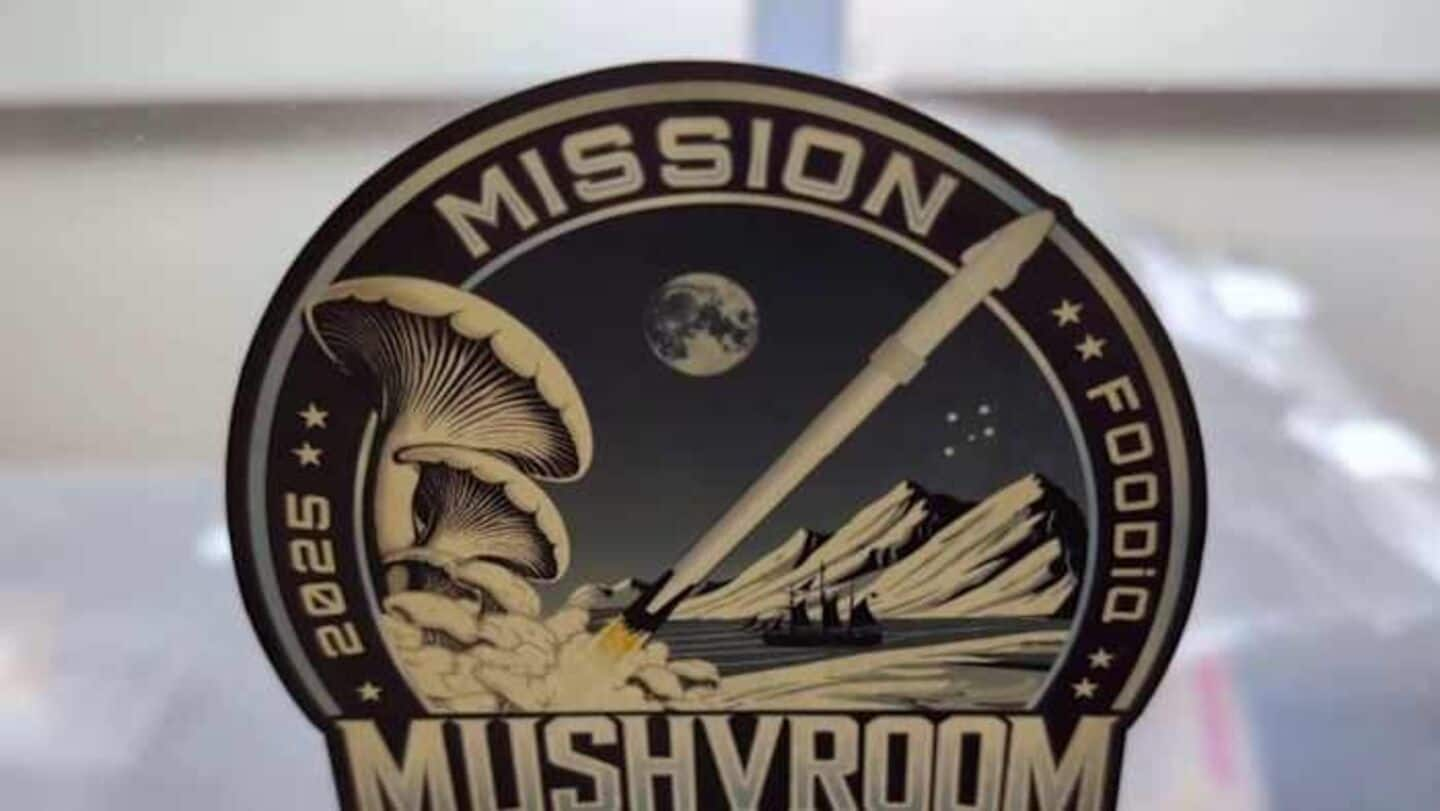
SpaceX's next mission will grow mushrooms in space—Why it matters
What's the story
SpaceX is scheduled to launch its pioneering Fram2 mission no earlier than March 31, marking the first human spaceflight over Earth's polar regions.
The crew will enter a 90-degree inclination orbit, passing over both the North and South Poles.
A key objective of this mission is an experiment named Mission MushVroom, where astronauts will attempt to grow oyster mushrooms in microgravity conditions.
Experiment details
Australian firm leads mushroom growth experiment
The mushroom growth experiment is led by Australian firm FOODiQ Global.
Mushrooms, according to the company's statement, could provide a nutritious and sustainable food source for long-duration space missions.
"Mushrooms are the perfect space crop," FOODiQ Global CEO Flavia Fayet-Moore said. She noted that oyster mushrooms double in size daily and are packed with nutrients.
Mission team
Fram2 mission crew and their tasks
The Fram2 mission is headed by Maltese entrepreneur Chun Wang.
The team includes vehicle commander Jannicke Mikkelsen from Norway, Australia's Eric Philips as medical officer and mission specialist, and pilot Rabea Rogge from Germany. This will be their first spaceflight experience.
During this planned three-to-five-day SpaceX mission, they will conduct a series of research experiments focusing on astronaut health, with proper nutrition being a key factor.
Nutritional benefits
Mushrooms could replace key supplements on ISS
Fayet-Moore stressed on the nutritional value of mushrooms in space.
She said, "Mushrooms are rich in umami flavor, being one of the only tastes that remains strong in space."
She also spoke about their resilience and scalability and how they could replace one of the key supplements currently provided to astronauts on the International Space Station (ISS).
Growth monitoring
Astronauts to monitor growth of mushrooms
As part of MushVroom experiment, the crew will prepare the oyster mushroom substrate and study its fruiting process, which is critical for releasing new spores.
They shall closely monitor the development rate of the mushrooms (the fruiting bodies), look for any signs of contamination, and also analyze various other growth characteristics.
After the mission, scientists at FOODiQ Global will examine these mushrooms grown in space to understand microgravity's effects on them.